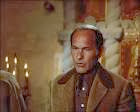
J. and S. – storia criminale del far west – Italian title
La banda J. & S. – cronaca criminale del far-west –
Italian title
Los hijos del dia y de la noche – Spanish title
Die rote Sonne der Rache – German title
Lännen karhukopla – Finnish title
Far West Story – French title
Listeia ala Amerikanika – Greek title
Grym Revansch – Swedish title
Far West Story – U.K. title
Bandera Bandits – English title
The Gang of the Far West – English title
The J & S Band – English title
J & S: The Criminal Story of an Outlaw Couple –
English title
Bandits! – U.S.A. title
Sonny & Jed – U.S.A. title
A 1972 Italian, Spanish, West German co-production
[Producciones Cinematográficas Orfeo (Rome), Roberto Loyola Cinematografica Sp
A (Madrid), Terra-Filmkunst (Munich)]
Producer: Roberto Loyola
Director: Sergio Corbucci
Story: Sergio Corbucci
Screenplay: Sergio Corbucci, Sabatino Ciuffini, Mario
Amendola, Adriano Bolzoni, José María Forqué
Cinematography: Luis Cuadrado (Luis Encinar)
[Technicolor]
Music: Ennio Morricone
Songs: “Sonny”, “Sweet Susan” sung by I Cantori Moderni
Running time: 97 minutes
Cast:
Jed Trigado – Tomas Milian (Tomás Rodríguez)
Sonny – Susan George
Sheriff Franciscus – Telly Savalas (Aristotelis Savalas)
Linda Moreno – Rossana Yanni (Marta Paxot)
Aparacito – Franco Giacobini (Francesco Giacobini)
Doña Aparacito – Laura Betti (Laura Trombetta)
Doñ Garcia Moreno – Eduardo Fajardo
Merril – Herbert Fux
Killer – Werner Pochath
Bounty hunter – Dan van Husen (Daniel van Husen)
Hotel clerk – Gene Collings (Gene Collins)
Felipe – Victor Israel (Josep Vilanova)
Somillo – Simón Arriaga
Don Garcia henchmen – Jose Canalejas, Raphael Albaicin
Lawman in bowler – Álvaro de Luna (Álvaro Blanco)
Roulette croupier – Lorenzo Robeldo
Sbirro - Rafael Albaicín (Ignacio Escudero)
Sheriff – Alvaro de Luna
With: Francesco Arcuri, Luis Aller, Pilar Climent, Mario
Talleri, Ruggero Fedozzi, Luis Cuadraro, Miguel Amario (Miguel Bosch), Fabián
Conde, Jaime Doria, Gonzalo Esquiroz, Ruggero Fedozzi, Léopoldo Francés, Carmen
Guardón, Ricardo G. Lilló, David Nero, José Riesgo, Beatriz Savón, Bernie
Thomas, Lucy Tiller (Lluch Tiller), Juan Cazalilla

Jed Trigado is an extravagant lone outlaw, who only
steals from the rich and hidesout in Bandera, Mexico, with the peaceful Somillo
Indian tribe. His biggest enemy is Sheriff Franciscus, who is determined to
avenge the defeat suffered at the hands of Jed who managed to escape from his
prison after killing many men. Sonny is a great admirer of Jed and wants to
work with him. The insistence of the girl, and the pressure of Franciscus,
forces the reluctant Jed to accept her and after a few robberies taken together
and they get married and then rob the minister. Franciscus, still in pursuit
the outlaw couple demand from the sheriff a promise, in addition to a sizeable
reward, amnesty for all their crimes. But this strategy is unsuccessful and
they escape during a fire set in a barn which results in the blindness of
Sheriff Franciscus. Now emboldened, Sonny and Jed present themselves at the
banquet of Garcia Moreno and his wife, Linda, during which Jed kidnaps the lady
and takes her to Bandera. Sonny becomes jealous of Linda and allows Sheriff
Franciscus to enter Jed’s hideout. Jed is wounded by him and Sonny, nurses him
back on his feet, and forces her husband to follow her in a state of
subservience, treating him like a slave which is how Jed treated Sonny at the
beginning of their relationship.
 From Italy comes the news of the death of stage, TV and voice
actor Antonio Guidi, born in Ferrara October 28, 1927 who passed away on
Thursday, October 17 in Milan, Loimbardy, Italy. He was 86.
From Italy comes the news of the death of stage, TV and voice
actor Antonio Guidi, born in Ferrara October 28, 1927 who passed away on
Thursday, October 17 in Milan, Loimbardy, Italy. He was 86.
















































